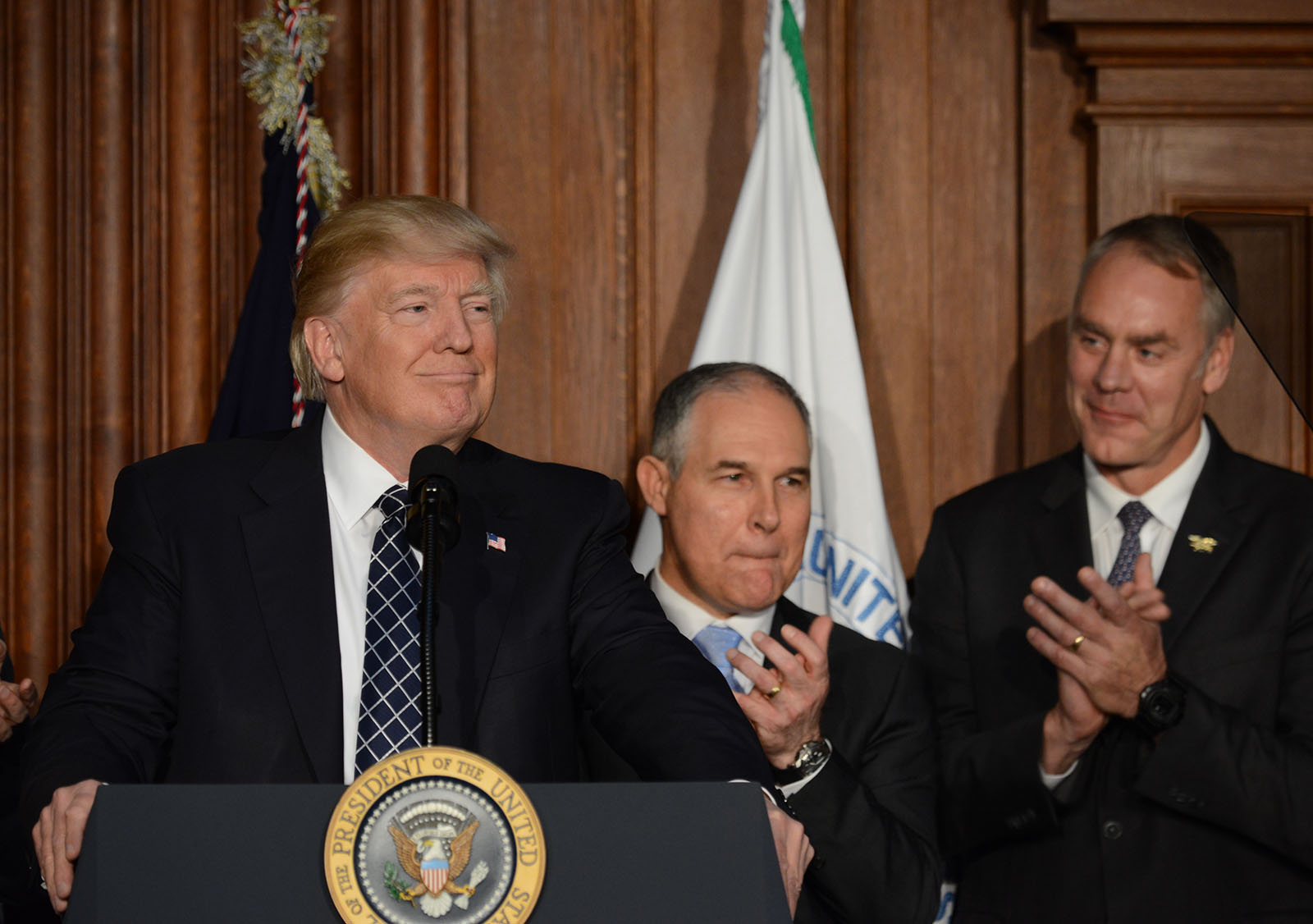
The Environmental Integrity Project (EIP) released a report earlier this month showing that, when compared to the last three presidents, the Trump administration has lagged behind on environmental regulation enforcement. During their first years in office, Presidents Bill Clinton, George W. Bush and Barack Obama all handed out more penalties and pursued more consent decrees than the current President during the same time period. Between January 20th, 2017 and January 20th, 2018, the administration initiated 48 consent decrees and brought in $30 million in penalties. That’s half the amount of penalties and 44 percent fewer civil cases than Trump’s predecessors.
The Previous Administrations
The report found that, during the Clinton administration’s first year, 73 decrees were lodged, resulting in $55 million in penalties. And during Bush’s incipient year, $50 million in penalties were gained from 112 consent decrees. Obama filed fewer civil cases (71) but took home $71 million in penalties – that’s over twice the amount of the Trump administration.
EPA’s Reponse
EPA Administrator Scott Pruitt spun the report’s findings, arguing that the civil actions in question – and the resultant penalties – are not legitimate methods of enforcement. He referred to the process as “regulation through litigation.” In addition, the EPA responded to the report, saying its priorities have been elsewhere. Rather than focusing on consent decrees, the EPA has been focusing on cleanups and compliance. What’s more, Liz Bowman, an EPA spokesperson, said the report is not an accurate reflection of the agency’s status: “EPA works with state partners on enforcement oversight; and, results of the Agency’s enforcement work are reliant upon work that takes place over multiple years.”
The Critics
But Eric Schaeffer – head of the EIP and former director of the Office of Civil Enforcement at the EPA – had a different view: “President Trump’s dismantling of the EPA means violators are less likely to be caught, making illegal pollution cheaper.”
George Czerniak, a former EPA director of the Air and Radiation division, refuted Pruitt’s contention that litigation is an inappropriate form of enforcement: “A vigorous enforcement program is an essential tool for delivering the promise of our environmental statutes.” He went on: “Without it, our regulatory and permit limits are merely suggestions.”
Complications
The results of the report are complicated by the fact that the administration’s enforcement projects are heavily affected by the amount of civil cases commenced by the outgoing administration. With that in mind, according to Bloomberg, the numbers could indicate a steady decline starting in 2012. And to complicate matters further, the EPA’s own numbers – released a week before the EIP’s report – could point to a downturn that goes back as far as a decade.
Unheeded Cases
Nonetheless, the report discovered 15 notices that had been distributed in Midwestern states during the Obama administration and that have not received any attention from the current EPA. This lack of follow-up could affect the lives of 260,000 people who live in proximity to lead, sulfur dioxide and other dangerous chemicals.
Deregulation and Budget Cuts
According to critics like Schaeffer, it doesn’t help that the administration has embraced a policy of disinvestment and deregulation. The Fiscal 2019 budget proposal and the recently released infrastructure plan both seem to exacerbate the problem, as they seek further deregulation and fewer obstacles for polluters. The infrastructure plan, for instance, would roll back environmental reviews for new building projects and would do away with the EPA’s veto power, which allows the agency to end projects deemed environmentally dangerous. According to a press release regarding the new infrastructure policy (the so-called “One Agency, One Permit” concept), “Duplicative environmental reviews and processes would be eliminated in favor of more cooperation and earlier engagement by all relevant agencies in order to achieve positive environmental outcomes, regulatory certainty, and public transparency.”
It would appear that the administration is making it easier and easier for companies to pollute with impunity. In the end, Congress must weigh in on the budget and infrastructure plan.



Leave a Comment